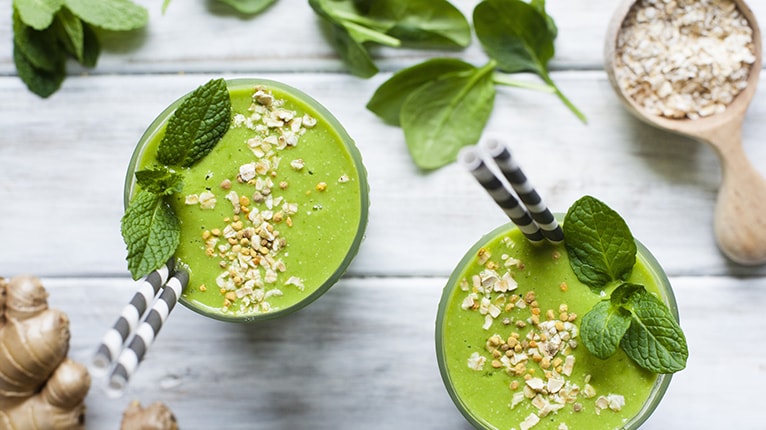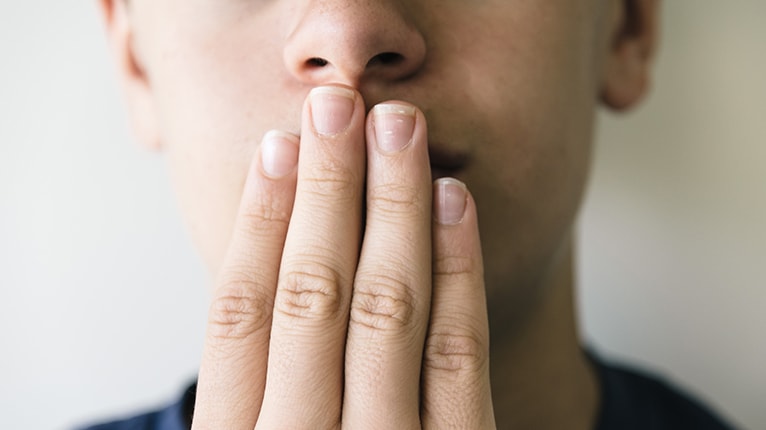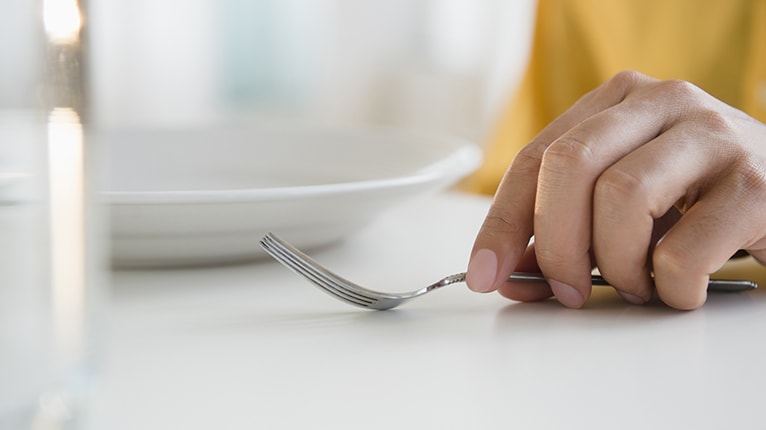Managing nutritional concerns: Taste changes

Cancer treatment affects the cells in the body that replicate the fastest. These cells are located throughout the lining of the gastrointestinal (GI) tract. As a result, you may experience changes in your sense of taste and smell. Foods you usually prefer may become unappealing. You may also find that foods taste bland, bitter, or metallic. Your food preferences may also change as you experience different side effects of your treatment.1
Tips For People Experiencing Taste Alterations2,3:
- Rinse with 1-2 oz of baking soda rinse before and after meals (recipe for baking soda rinse: 1 quart water, ¾ teaspoon salt, and 1 teaspoon baking soda). DO NOT SWALLOW
- Use a non–alcohol-based mouthwash or mouth rinses such as Biotene
- If red meats taste strange, try substituting other proteins such as chicken, turkey, fish, eggs, dairy, beans, or tofu
- Eat foods that smell and look good to you
- Avoid favorite foods on the day of or days around your treatment
Lack of taste, "cardboard"
- If you do not have any mouth soreness and foods lack taste or taste like "cardboard," season foods with tart flavors, such as lemon, citrus, vinegar, or pickled foods
Metallic taste
- Avoid using metal utensils; use plastic utensils instead
- If you do not have any mouth soreness and foods taste metallic, add extra flavor to foods with spices such as onion, garlic, chili powder, basil, oregano, rosemary, tarragon, barbecue sauce, mustard, ketchup, or mint
- Avoid hot foods to reduce strong odors, serve food at room temperature
- Use sugar-free lemon drops, gum, or mints
Salty, Bitter, or Sour taste
- Try adding sweetening agents such as sugar, maple syrup, or honey to help enhance the taste
Sweet taste
- Add six drops of lemon or lime juice or until sweet taste is muted
Always communicate with your doctor and nurse about what you are experiencing. Contact your MD if you are having trouble swallowing, difficulty with coughing while eating or drinking, you experience a choking sensation, have pain, or weight loss.
References:
- Taste changes. Cancer.Net. http://www.cancer.net/survivorship/healthy-living/nutrition-recommendations-during-and-after-treatment. Accessed December 6, 2016.
- Elliot, L. Symptom Management of Cancer Therapies in Lesser M, Ledesma N, Bergerson S, Trujillo E, eds. Oncology Nutrition for Clinical Practice. Oncology Nutrition Dietetic Practice Group of the Academy of Nutrition and Dietetics: 2013. pg 120.
- American Institute for Cancer Research, Savor Health and LIVESTRONG. Heal Well: A Cancer Nutrition Guide. 2013. http://savor.static.assets.s3.amazonaws.com/pdfs/Heal_Well_Cance Guide_2015-web.pdf. Accessed December 6, 2016.
The health information contained herein is provided for educational purposes only and is not intended to replace discussions with a health care provider. All decisions regarding patient care should be made with a health care provider.

















